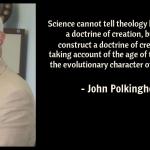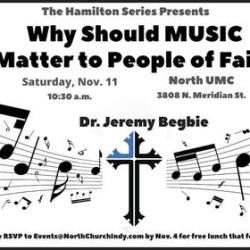I wish I could find a recording of Amy Beach’s work “Jephthah’s Daughter.” That story is one of the many challenging and tragic ones in the Bible, and I would very much like to hear Beach’s treatment of it. Female readers of stories like this one often immediately notice the patriarchal cultural values embedded in it in ways that male readers may not. I would thus like to hear what female composers do when exploring the story. Clarissa Aaron has written on the subject: “A Story of Feminine Sacrifice: The Music, Text, and Biographical Connections in Amy Beach’s Concert Aria Jephthah’s Daughter.” The complete score of Beach’s aria is on IMSLP.
Ernst Toch wrote an instrumental work exploring the story after reading a novel based on it.
G. F. Handel has an oratorio about Jephthah:
There are also musical treatments by Giacomo Meyerbeer (Jephtas Gelübde) and Giacomo Carissimi (Jephte). Claude Mariottini blogged about the story recently:
Returning to Amy Beach, having been unable to share her “Jephthah’s Daughter,” here is her setting of famous words from Philippians:
There is much more about this work online, including on a website dedicated to the music of Amy Beach:
Herbert Howells is another composer whose biblical music I want to talk about. My Sunday school class has been discussing lament, and a song by Howells, “King David,” came up, prompted by my having previously shared settings of “When David Heard.” I will get to that song below. First, however, let me share another work of Howells’ which includes words from Psalm 23, Psalm 121, and Revelation together with mass texts and others, and which arose out of Howells’ own personal experience of tragic loss.
Andrew Green writes about Howells’ Hymnus Paradisi:
Howells was later to describe himself as having been ‘frozen’ by Michael’s death, although he threw himself back into his teaching at the Royal College of Music in an effort to come to terms with the unanswerable. As far as composition was concerned, Hymnus Paradisi became what he called ‘a medical document’, helping him to work through his grief… a deeply personal masterpiece which transfigured that grief into a whole range of emotions – hope, defiance, consolation, even ecstasy – while still giving eloquent expression to the pain of bereavement. For many years it was not realised that Hymnus is also in large part a transfiguration of what is now known to be a pre-existing work: Howells’s unaccompanied Requiem.
Hymnus Paradisi was finished by 1938, but remained hidden away. It was, Howells said, ‘a personal, secret document’. Eventually his idol Vaughan Williams encouraged him to offer the work for performance, resulting in a premiere at the Three Choirs Festival in Gloucester in 1950, almost fifteen years to the day since Michael’s death, with Howells conducting.
Howells has also set Psalm 42:1-3, Psalm 84:9-10, and Psalm 118:24. Although not a setting of a biblical text, Howells’ song “King David” explores the story of a biblical character as I already mentioned:
I should also mention that Howells’ father played organ at a local Baptist church.
Here are some more musical things to share. Next up, Bob MacDonald’s rendition of Psalm 65 based on the cantillation markings in the Hebrew text:
Although only rarely have they been set to music (that we know of), and extrabiblical, the Odes of Solomon are an important worship text from the early church. Mark Mattison contributed a couple of things about them to Shirley Paulson’s website on early Christianity:
How the Beautiful Odes of Solomon Enhance Jewish-Christian Dialogue
I encourage you to support Dr. Charlotte Naylor Davis’ work on the Bible and heavy metal music.
The story of Judith has also been set to music, and so let me mention the article “Considering Judith” by Gerhardus van den Heever.
Finally, for Evolution Weekend, here is a hymn by David Lee that seeks to bring together biblical ideas of creation and modern science: “In Chaos and Nothingness.”













